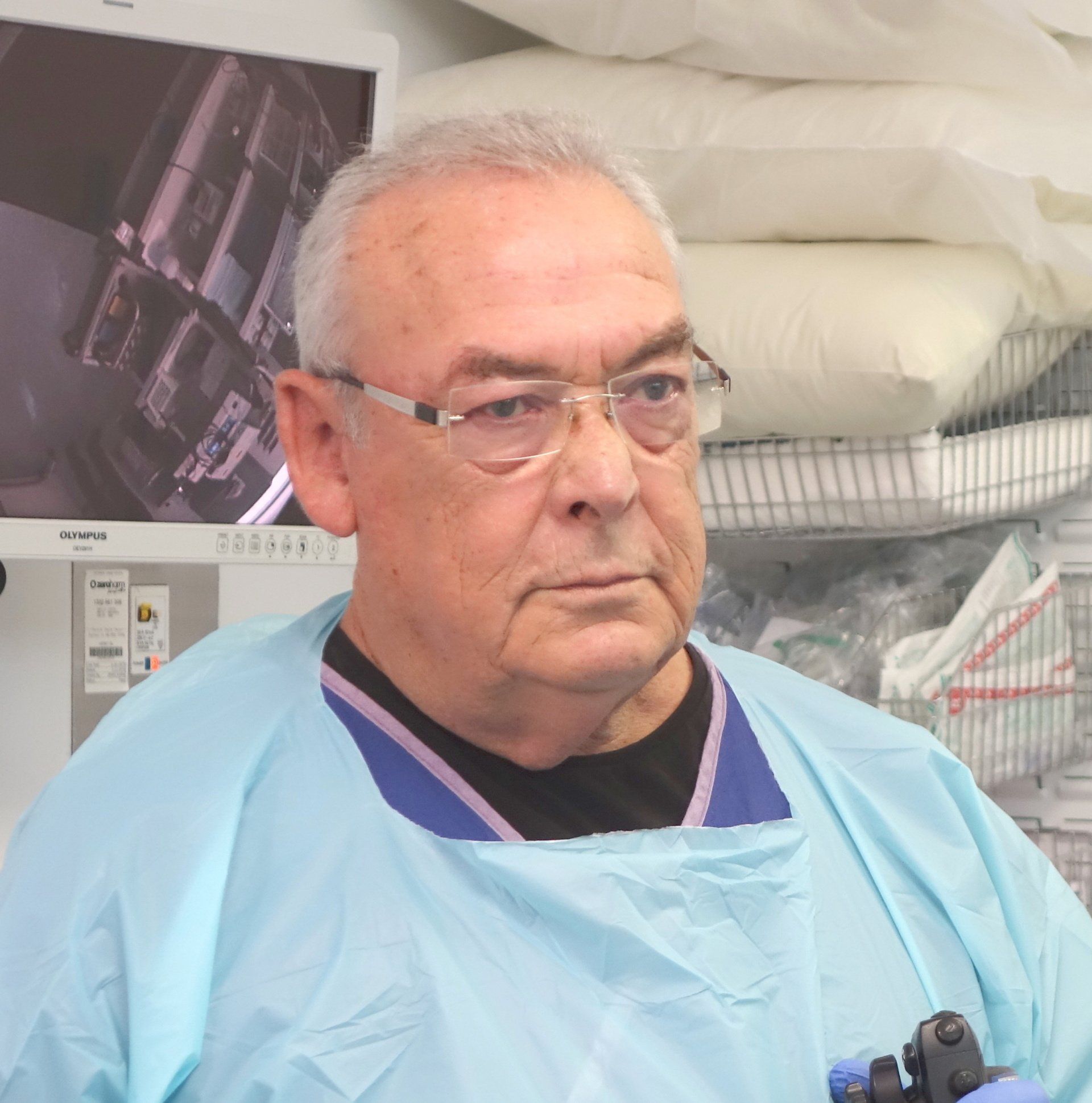Colonoscopy
What is a Colonoscopy?
A Colonoscopy is an endoscopic procedure used to view or examine the inside surface of the large intestine (colon and rectum) or large bowel.
A Colonoscopy is a procedure performed to detect irregularities such as
- inflamed tissue,
- ulcers, and
- abnormal growths.
Specifically, a Colonoscopy helps in the diagnosis of:
- colorectal cancer,
- bowel disorders,
- abdominal pain,
- inflamed tissue,
- ulcers, and
- anal bleeding.
Colonoscope Device
An instrument called a colonoscope is used during a colonoscopy. This instrument includes:
- A long thin flexible tube
- A small camera and light at the end, and
- Other instruments can be added
By adjusting the various controls on the colonoscope or endoscope, your doctor can safely guide the instrument to carefully examine the inside lining of the digestive system or the upper or lower gastrointestinal tract.
If necessary other instruments can be inserted through the Colonoscope that allows a variety of therapeutic procedures to be carried out during a Colonoscopy procedure.
Such therapeutic procedures may include:
- the taking of tissue samples (biopsies), and
- removal of polyps (benign wart-like growths).
Polyps or growths removed during a Colonoscopy which can be sent later for diagnostic testing to a pathology lab.
About Your Colonoscopy Procedure
Colonoscopy is performed usually with sedation by an anaesthetist.
The colonoscope is inserted into the bottom end of the anal canal. The colonoscope gently moves up through the rectum and then colon until it reaches the caecum (junction of the small and large intestine).
The colonoscope is then withdrawn slowly as the camera shows pictures of the colon and rectum on a high-quality screen for a clear and detailed view.
Irregularities During Colonoscopy
Occasionally narrowing of the bowel or other diseases may prevent the instrument from being inserted through the full length of the colon.
As colon cancer arises from pre-existing polyps (benign tumours), it is advisable that if any polyps are found, they are removed at the time of examination.
Most polyps can be burnt off by placing a wire snare around the base and applying an electric current.
How Long Does a Colonoscopy Take?
You will be in the facility for approximately 2 hours.
Consent Forms for Colonoscopy
Because of the risk of cancer, it is recommended that all polyps found to be removed at the time of colonoscopy.
Due to sedation, it will not be possible to discuss the removal at the time, therefore if you have any queries regarding polyp removal please discuss this prior to the procedure.
For the colonoscopy to be performed a consent form is required to be signed by you on the day of the procedure.
Risks and Complications with Colonoscopy
For inspection of the bowel alone, complications of colonoscopy are very uncommon. Most surveys report complications of 1:1000 examinations or less.
Complications which can occur include:
- intolerance of the bowel preparation solution
- reaction to the sedatives while uncommon and can be avoided by administering oxygen during the procedure and monitoring pulse and oxygen levels in the blood.
- Perforation (making a hole in bowel) or major bleeding from the bowel is extremely rare, but if it occurs may require surgery.
- When operations, such as removal of polyps, are carried out at the time of the procedure, there is a slightly higher risk of perforation or bleeding from the site where the polyp was removed.
A number of rare side-effects can occur with an endoscope procedure. If you wish to have full details of such complications explained to you please discuss this with the doctor prior to the examination.
In the unlikely event of haemorrhage occurring, a blood transfusion may be necessary.
It is important to realize that no test is perfect and small lesions, and rarely even cancers can be missed during colonoscopy. The rates of missed cancer in international literature is 0.01%. For this reason, follow up colonoscopy is often recommended and if there is a change in your symptoms, these should be discussed with your doctor even if you have previously had a colonoscopy.
Dr Donald Walker
Write your caption hereMore
Dr Johan Van Den Bogaerde
Write your caption hereMore
Trusted for more than 25 Years
PANCREAS & BILIARY
Digestion Problems - Dyspepsia









